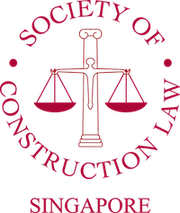- Details
- Hits: 2509
WEBINAR: Annual Construction Law Update 2021 (20 January 2021)
On 20 January 2021, the Society kicked off its calendar year and also its yearly tradition with its Annual Construction Law Update. The talk was delivered by 2 eminent speakers, Janes Davies Evans (Barrister/arbitrator, 3 Verulam Buildings) and Nandakumar (Kumar) Ponninya (Principal, Dispute Resolution, Asia Pacific, Baker & McKenzie Wong & Leow) who gave participants a run down of the year’s events in the construction law space. The virtual event was very well received with 129 participants.
The year’s talk started with opening remarks by SCL(S) Chairman, Mr Lee Chau Ee. Following his introduction, Jane surveyed recent cases across different jurisdictions on a broad range of issues:
- Halliburton v Chubb [2020] UKSC 48, Secretariat v A Company [2021] EWCA Civ 6 – these cases involve conflict of interest relating to the arbitrator and expert appointments and the English courts’ guidance as to how such conflicts should be treated
- Empyreal Energy v Daylighting Power [2020] EWHC 1971 – this decision highlights the importance of carefully considering the precise language of an expert determination clause and ensuring that the contract is permitted to resolve the parties’ dispute by expert determination. Otherwise parties bear the risk of obtaining an unenforceable decision.
- Standard Life Assurance v Gleeds [2020] EWHC 3419 – whilst courts generally do not disallow proving claims by sampling or extrapolation, the sampling/extrapolation exercise has to be sufficiently representative to avoid sample being affected by bias and to enable the court to place reliance upon it
- White Constructions v PBS Holdings P/L [2019] NSWSC 1166 – the Australian court applied a “common law common sense approach to causation” and a reminder on the importance of record keeping.
- Energy Works (Hull) Ltd v MW High Tech Projects UK Ltd & Others [2020] EWHC 2537 (TCC) – the TCC court had an opportunity to review the wording of the assignment clause under the main contract. It decided that in the absence of any clear contrary intention, reference to assignment of the contract is understood to mean assignment of both accrued and future rights. Therefore, parties should be careful to consider the assignment provisions in their contract and seeking to limit the rights being assigned and protecting their accrued rights.
- Hsin Chong Construction Co Ltd v Build King Construction Ltd [2020] HKCA 536 and [2019] HKCFI 1531 – it is worthy to note that the Hong Kong courts had applied the legitimate interest test established in the UK decision of Cavendish. This is a rather new test on penalties which replaces the old test of whether a clause was a genuine pre-estimate of loss.
- Obrascon Huarte Lain v Qatar Foundation for Education, Science & Community Development [2020] EWHC 1643, Maeda Corporation and Another v Bauer Hong Kong Ltd [2020] HKCA 830; [2019] HKCFI 916, 4A_124/2020 (Switzerland), Doglemor v Caledor [2020] EWHC 3342 - these decisions relate to challenges to arbitral awards in different jurisdictions.
The second half of the session was delivered by Kumar who gave participants an in-depth coverage of the COVID-19 (Temporary Measures) Act (“COTMA”), the relief measures under Part 8A and 8B and illustrated by way of case studies how the relief measures operate. Kumar moved on to cover a series of judgements concerning statutory adjudication under the SOP Act and construction case law developments.
Kumar considered the landmark decision of Façade Solution Pte Ltd v Mero Asia Pacific Pte Ltd [2020] SGCA 88. The Court of Appeal established a two-stage test on when an adjudication determination can be set aside on grounds of fraud.
The main key take-away from Shimizu Corp v Stargood Construction Pte Ltd [2020] 1 SLR 1338 is that the SOP Act does not create a separate right for a party to lodge a payment claim if the contract does not allow a party to do so.
In Orion-One Residential Pte Ltd v Dong Cheng Construction Pte Ltd [2020] SGCA 121, the Court of Appeal reaffirmed the position in Shimizu and held that it is commercially insensible for the claimant to apply for adjudication two years after the termination of the contract. Therefore, claimants should ensure that payment claims are served in a timely manner.
CEQ v CER [2020] SCHC 192 concerns the stay of enforcement of an adjudication determination. The Court considered it necessary to consider the question of whether the adjudicated amounts are required to sustain a claimant’s business operations.
The main highlight is the Court of Appeal’s decision in Denka Advantech Pte Ltd v Seraya Energy [2020] SGCA 11. Prior to Denka, there was some uncertainty as the local courts has not had a chance to consider the Cavendish formulation. The Singapore Court of Appeal rejected the legitimate interest test established in Cavendish and upheld the traditional Dunlop test. This conclusively settles the position in Singapore.
Kumar concluded his talk with two decisions involving injunctions restraining calls on performance bonds. The court continue to affirm the high threshold for establishing unconscionability in CEX v CEY [2020] SCHC 100 and Sulzer Pumps Spain and SA v Hyflux Membrane Manufacturing (S) Pte Ltd [2020] SCHC 122. In CEX v CEY, the High Court developed a three-stage framework for determining whether unconscionability is made out and decided to grant a full restraint on the call.
In SA v Hyflux, the High Court affirmed that calling on the bond where there is a genuine dispute does not amount to unconscionability and it was not necessary for the Court to go into the merits of the dispute.
The talk was followed by a lively Q&A session moderated by SCL(S) Vice Chairman Moon Kua, where the speakers took questions from the floor. There was a lot of interest from the audience on the operation of the cost sharing mechanism under Part 8B of the COTMA.
It was my privilege to be sharing the stage with Jane and Kumar.


